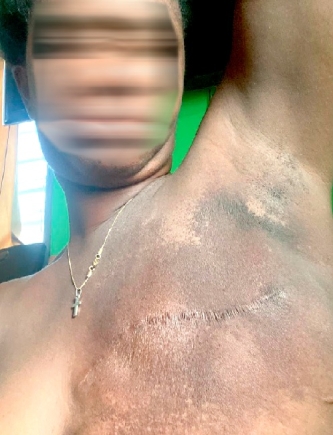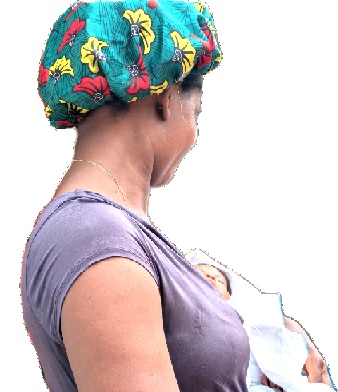Barely two months after completing her radiotherapy sessions following a mastectomy — a surgery to remove one breast affected by cancer — Ms Akosua Sarh (not her real name) discovered she was pregnant.
Although she was sexually active, she had not anticipated getting pregnant so soon after her treatment. She assumed that the treatment processes and medications would have reduced her fertility and chances of conception.
By the time she confirmed her suspicions, she was already two months into the pregnancy.
The team at the breast clinic, where she had received cancer care, quickly referred her to a gynaecologist for specialised management throughout the pregnancy.
She described the pregnancy as largely uneventful until the seventh month, when she had to be rushed to a hospital for an emergency Caesarean Section (CS).
“I had gone to a facility to run a routine test when I started experiencing sharp stomach pains. Initially, I was rushed to a public hospital, but the nurses were on strike, so the only doctor on duty tried to stabilise my blood pressure, which was high, and referred me to a private facility.

“I lost consciousness at some point,” she recalled softly. “Later, I was told that the private facility had referred me to another hospital when they decided I needed to deliver the baby. Apparently, they didn’t have the capacity to perform a CS,” she told this reporter in Accra last Wednesday.
When she regained consciousness, the surgery had already been done, and her baby had been rushed to the Neonatal Intensive Care Unit (NICU) at the Korle Bu Teaching Hospital in Accra.
Expressing breast milk
At the NICU, Ms Sarh was expected to manually express breast milk to feed her preterm baby. Like most mothers who deliver prematurely, she initially struggled to produce enough milk.
Her challenge was even greater as she could lactate from only one breast.
She said the nurses allowed her to use a breast pump after she explained her situation. With time, she was able to express some milk to supplement the formula her baby was being fed.
“I always felt moody when I saw other mothers express milk from both breasts, but I was grateful that my baby was responding well despite being born very early,” she said.
She added that aside from explaining her situation to the health team, she occasionally had to open up to other mothers when she was moved into the Kangaroo Mother Care (KMC) ward.
“At KMC, the mothers support each other in many ways. The mothers close to me noticed I was always expressing from one breast, so I told them about it.
“When the nurses were teaching us how to do skin-to-skin KMC, they also noticed I had only one breast.
“It wasn’t something I would have discussed openly with strangers, but in there, we are each other’s keepers, so it wasn’t difficult to talk.
Opening up made both the health team and the mothers around me more compassionate and supportive,” she added.
Breastfeeding Journey
Ms Sarh said her baby, now four months old, seems to prefer breast milk to formula.

“She becomes restless when she realises there’s no more milk in the breast,” she said, her voice heavy with emotion. “I struggle before she accepts milk from a cup or feeding bottle. Luckily, she feeds when she’s asleep, so that’s when I sneak the bottle in. I wish I could breastfeed like other mothers, but when I think about our journey and how far we’ve come, I can only be grateful to God for His mercies.”
“The scars from the surgery, and seeing my baby thrive against all odds, give me hope and strength to keep going. I’ve had very little support from my family, and that gets to me sometimes, but my baby is now my reason not to give up,” she added.
Inability to follow up at the Breast Clinic
Ms Sarh was advised to return to the breast clinic for further assessments after delivery, but has not been able to do so.
She explained that her partner spent a significant amount of money at the two private hospitals, particularly the one where she underwent the Caesarean Section.
The baby’s stay in the NICU also came with heavy expenses — so high that they had to rely on donations from friends and well-wishers to get by.
She said that if she could raise enough money for the follow-up tests at the breast clinic, she would gladly go for her review.
Writer’s email: efiaamoakoa2@gmail.com

